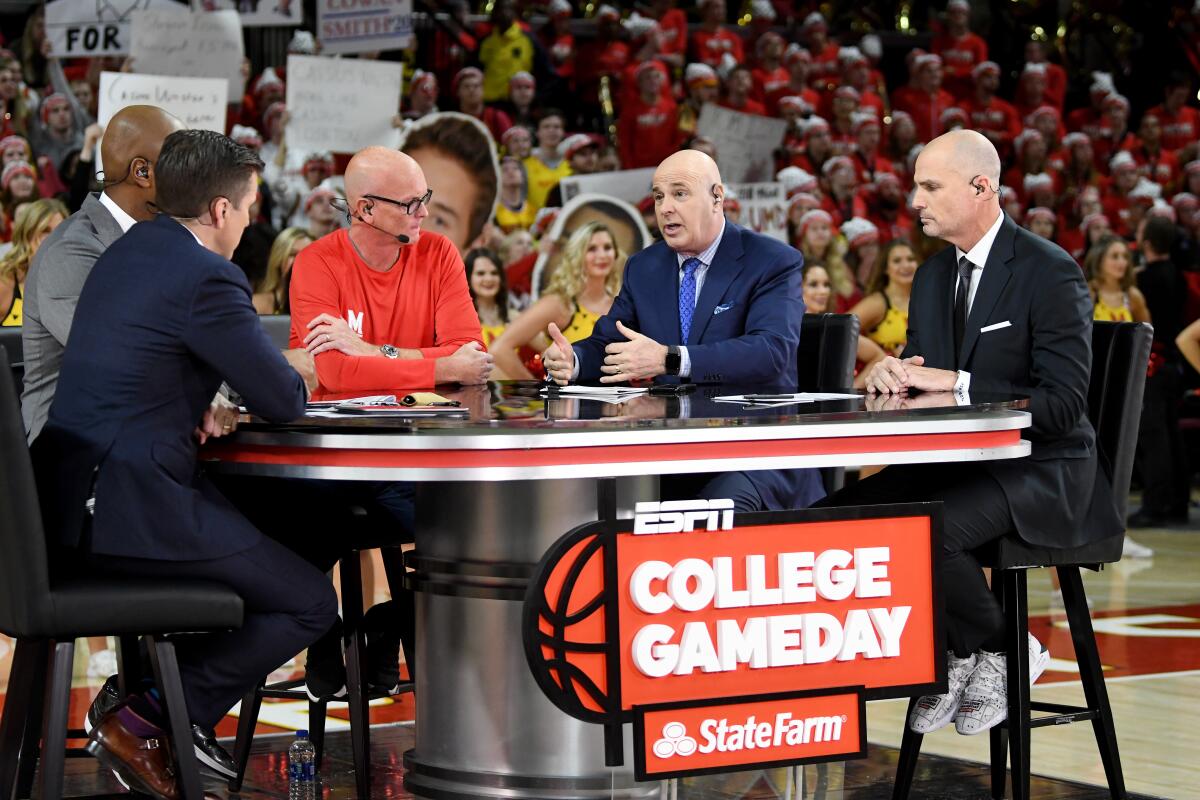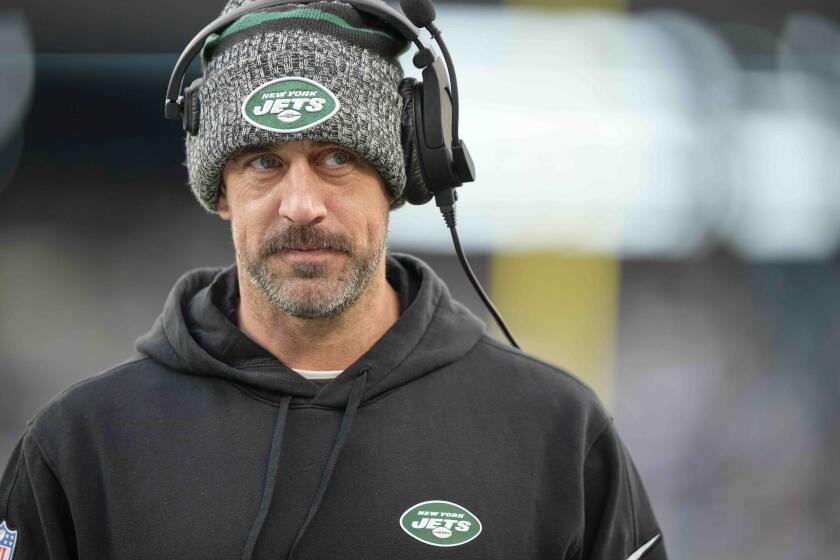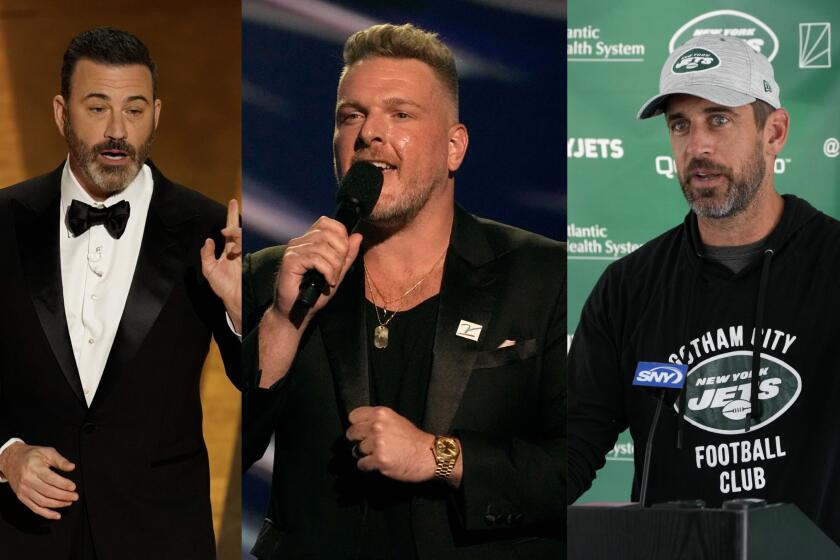ESPN returns 37 Emmys, disciplines employees after a decades-long scheme is unearthed

- Share via
ESPN has returned dozens of Emmys and disciplined employees involved in a decades-long scheme to secure trophies for ineligible on-air personalities by submitting fake names for consideration, according to the National Academy of Television Arts & Sciences (NATAS) and the sports network.
On Thursday, internal investigations conducted by the academy and ESPN found that employees at the sports network had been submitting made-up names to the Emmys organization in order to obtain, if they won, more than 30 extra trophies for broadcast personalities who were ineligible to receive them.
Since at least 2010, ESPN employees attached fake names to awards entries, the network said in a statement, and the scheme may have stretched back to 1997. When ESPN won an award, and trophies were awarded to all names submitted, employees took the extra trophies and had them reengraved with the names of on-air talent.
“NATAS identified a number of fictitious credits submitted by ESPN to multiple Sports Emmys competitions,” the academy, which administers the daytime, sports and news and documentary Emmy awards, told The Times in a statement.
“When brought to the attention of ESPN senior management, the network took steps to take responsibility for the actions of its personnel, to investigate thoroughly, and to course correct. These steps have included the return by ESPN of statuettes issued to fictitious individuals and commitments to implement further internal accountability and procedural changes at the network,” said NATAS.
Jets quarterback Aaron Rodgers was back on ‘The Pat McAfee Show’ a day after the ESPN host said he wouldn’t make his weekly appearance for the rest of the NFL season.
After NATAS discovered the fictitious submissions and launched an investigation, ESPN followed suit. The findings resulted in disciplinary actions and at least 37 returned trophies. The Athletic, which broke the story Thursday, reported that it is not known exactly who orchestrated the plan, but Craig Lazarus, vice president and executive producer of original content and features, and Lee Fitting, a senior vice president of production who oversaw “College GameDay” until he was let go last summer, were among the sports network’s employees banned from participating in future Sports Emmys submissions.
“College GameDay,” a cultural phenomenon and money maker for the network, scored eight Emmys for best weekly studio show from 2008 to 2018. The broadcast personalities were, until 2023, prohibited by NATAS guidelines from inclusion in a credit list for that specific category. They were eligible for other Emmys, such as host or studio analyst, but a win for the show wouldn’t land any statuettes for on-air talent.
ESPN employees dodged the rule by including fabricated names listed as “associate producers” — who happened to have the same initials as on-air talent — and then scrubbing the statuettes of the fake names, per the Athletic. After having the talents’ real names engraved on the trophies, the people involved gave them to ESPN’s on-camera stars, who told the Athletic they had not known anything was sketchy.
Pat McAfee apologized after Aaron Rodgers came on his show and wrongly suggested that Jimmy Kimmel was among those named in court documents as associates of Jeffrey Epstein.
“Some members of our team were clearly wrong in submitting certain names that may go back to 1997 in Emmy categories where they were not eligible for recognition or statuettes,” an ESPN spokesperson said in a statement obtained by The Times.
“This was a misguided attempt to recognize on-air individuals who were important members of our production team. Once current leadership was made aware, we apologized to NATAS for violating guidelines and worked closely with them to completely overhaul our submission process to safeguard against anything like this happening again.”
More to Read
The complete guide to home viewing
Get Screen Gab for everything about the TV shows and streaming movies everyone’s talking about.
You may occasionally receive promotional content from the Los Angeles Times.









